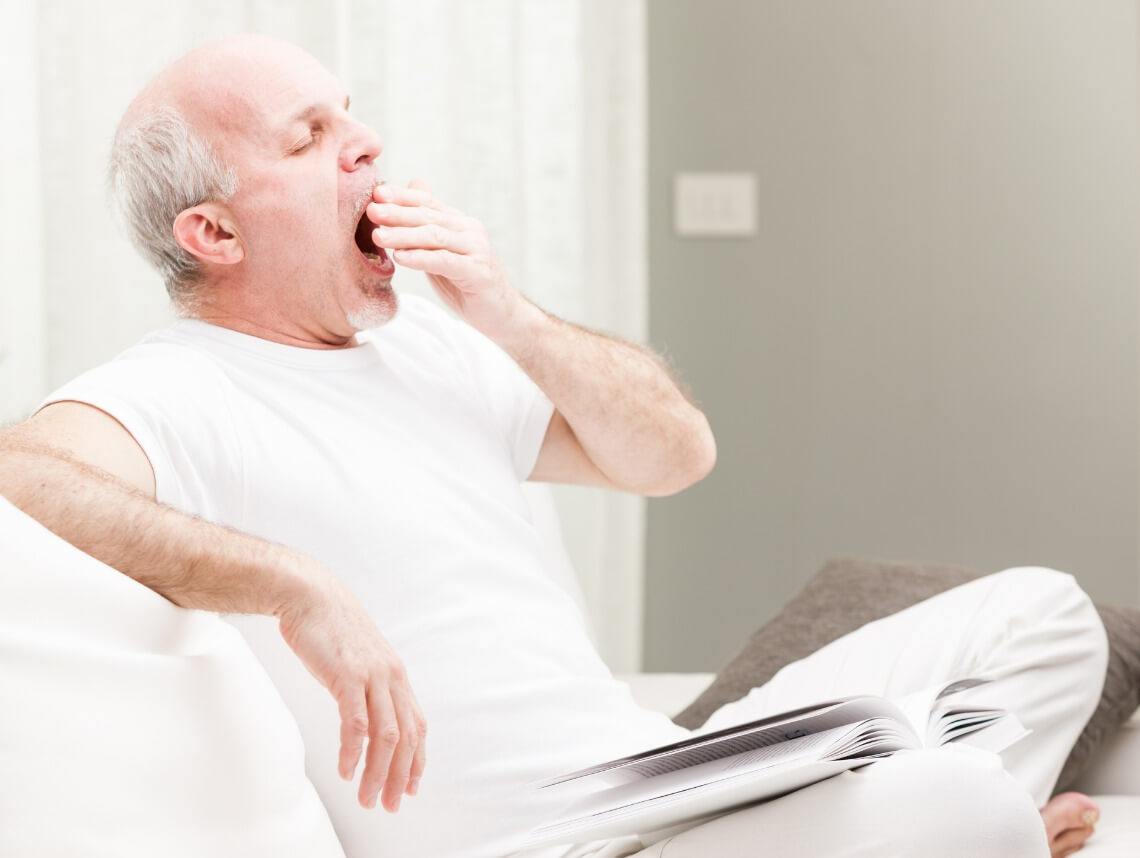Both sleep and falls are major factors in your home care journey with your elderly loved ones, but you may not often make the connection between them. In your efforts to make sure that your aging parents get enough sleep, you might not be thinking about the serious falls that could occur, and while you are making efforts to help protect them from falls, you may not be thinking about how their sleep can impact that risk. For up to 15 percent of elderly adults, however, these two factors are closely linked.
What is excessive daytime sleepiness?
Excessive daytime sleepiness, or EDS, is a condition that is characterized by an increased perception of sleep symptoms during daylight hours. More common among aging adults than younger people, excessive daytime sleepiness can have a variety of negative consequences, including confusion, cognitive issues, reduced activity and mobility, unsteadiness, reduced balance, and unsteady gait. For up to 30 percent of those who suffer from the effects of excessive daytime sleepiness, these symptoms can lead to serious falls that result in severe injury.
What causes excessive daytime sleepiness in seniors?
Many factors can contribute to or worsen excessive daytime sleepiness, including:
- Inconsistent sleep patterns, including going to bed and waking up at different times from day to day, or getting up in the middle of the night on some nights
- Frequent extended napping during the day
- Taking certain medications that make it difficult to fall asleep or reduce the efficiency, depth, and persistence of sleep
- Sleep apnea
- Insomnia
- Restless leg syndrome
- Chronic pain
- Recent stroke
- Parkinson’s disease
- Urinary urgency or incontinence
- Inactivity or not getting enough physical exercise
- Excessive consumption of alcohol or caffeine
Suffering from excessive daytime sleepiness can dramatically increase your parents’ risk of suffering a fall that could result in injuries that could result in lingering physical, emotional, and cognitive consequences.
How to Deal with Excessive Daytime Sleepiness
Some ways that you and your parents’ in home health care services provider can help your parents cope with and reduce symptoms of excessive daytime sleepiness, and protect them from falls, include:
- Do not minimize it. It is easy to dismiss increased sleepiness as just a normal part of aging, but the reality is that sleepiness that negatively impacts quality of life is not just part of getting older and should never be considered something you can just ignore. Meet with your parent’s doctor to discuss their sleepiness so that they can help you find the real source of this sleepiness and how you may be able to deal with it.
- Increase physical activity. It may seem like pushing a senior who is already sleepy to do more exercise will have a counterproductive effect, but the reality is that the more active you are, the more energy you will have. Find ways to encourage physical activity including cardiovascular and resistance training into your normal home care routine to support a more energetic lifestyle and to reduce the risk of both falls and injuries related to falls.
- Support healthier sleep. Encourage your parents to adopt a healthier approach to sleep, including a consistent sleep schedule, reduced or eliminated daytime napping, and urinary urgency management to help keep your parents asleep longer during the night.
Contact Care Options for Kids for Home Health Care Services
If you or an aging loved one are considering home health care services, contact the caring staff at Care Options for Kids. Call today at (888) 592-5855.






